Brewski
Brewing Fever
Escrito por Jesús Olano—Fotos por Guillermo Robles, Jesús Olano; Helsinborg (Sweden), 18/08/2017 beerbayOU
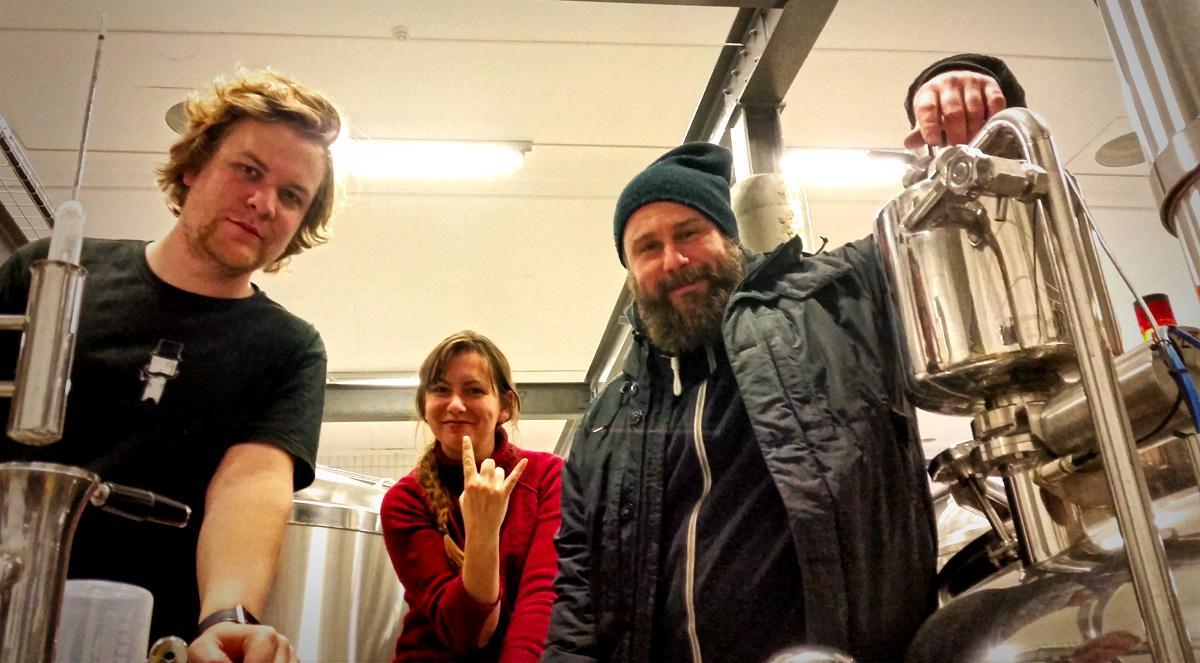
Not every person you met wakes up to start working at 3 o'clock in the morning. At least not voluntarily. When Marcus Hjalmarsson gave up his office job 4 years ago in order to start a brewery, he did it with all the consequences. He didn't want to settle with being an average brewery, even if his passion for brewing meant to work alone for the first two years until he knew he had something worth to deliver to the world.
The morning in Helsingborg is quite windy, and after accidentally stumbling upon the neighbouring brewery, Marcus welcome us in his facilities, where he is already ending his shift. After showing us the facilities, he takes us to one of his favourite coffee spots in Helsinborg. Marcus is a big and very talkative guy, and when talking to him you can see that he is happy with having a live right now devoted to brewing. In August he will host the second edition of his Brewskival, which is already one of the most awaited beer related events of the year in Europe.
It is very unusual for a brewer to wake up and start working at three o clock in the morning. What makes you wake up so early to start brewing?
“I see brewing as a meditation, so I don’t like to be disturbed while I’m brewing.”
Marcus: Well, I would love to wake up at half past seven in the morning and have an ordinary brew day. It is just, when you became a profile of a brewery, then you can’t work ordinary work hours, because you can’t get anything done. The main reason why I start so early is because nobody is calling me, nobody is mailing me, nobody is trying to get in touch with me before eight in the morning, so then I have 4 to 5 hours for myself. I like to work with no distractions, anything else than doing it. And that is very important.
I see brewing as a meditation, so I don’t like to be disturbed while I’m brewing. And also, I get visitors—like you guys—, so I don’t want to be too busy. That is very important to me. I tell every brewer that we have to give everybody time. If you lose one hour, then you can get that hour back later. Since I started, I always start brewing early in the night and it’s always me who take care of the visitors when the other shift is running. I get a few hours less sleep in the night, but I’m forty years old, and I’ve been sleeping a lot before... [laughs] And I hate sleeping, we have eighty years on this planet… We can’t sleep! We have to experience as much as possible.
But mainly is so I can focus more on the product and not being disturbed.
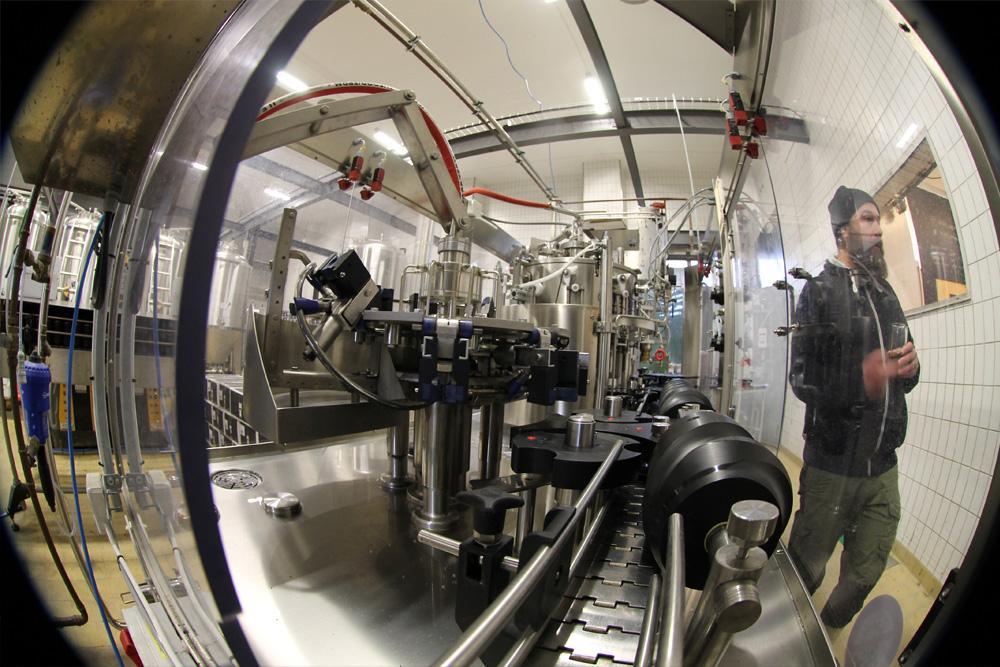
You decided to quit your job and start a brewery, how did that process take place?
“I don’t know why, I just decided it like—‘next monday I will start brewing’. So I quit my work and started brewing. And I don’t know why, if I told myself or somebody else told me. I don’t believe in god, so I think ‘the other me’ told me.”
Marcus: Actually it started 20 years ago, when I went to the US and I experienced craft beer for the first time. I asked myself, “why don’t we have microbreweries in Sweden? I loved the whole atmosphere around the brewery. It was very local, and a lot of people came down to drink beer there. I like the whole idea about having a brewery.
But then I was young and I had no money—I was still a student—, so I couldn’t do anything! I went home and I started to try different beers—mainly the British ales and stuff like that. But it actually started six years ago, when wife took me to special beermakers dinners, and we tried different beers from different breweries around the world. But when I actually decided it was at De Molen Festival [Borefts] in Netherlands 2013. This was my first really good festival I went to. This festival is ranked as one of the best festivals in Europe. And when I tried most of the beers at the festival, I was not very convinced over the quality of the beers.
So I just decided it there. I thought I could do this better. I thought at least I could do as good beers as these. And then you just get a feeling—“should I turn right or left”? So I went right. I don’t know why, I just decided it like—“next monday I will start brewing”. So I quit my work and started brewing. And I don’t know why, if I told myself or somebody else told me. I don’t believe in god, so I think the other me told me.
We did an interview with Henrik Papsø at Amager Bryghus, and he told us that he was one of your inspirations to start brewing.
Marcus: I really like Amager stuff, they were quite early in the area, in this region. They made amazing beers by the time—and they’re still making amazing beers. I had a favourite beer there, the Envy. Actually, we were quite offended by the setup from the breweries at De Molen’s, so we were 8 guys there. And we said, “well, Amager is the best beer in the festival”, so we decided to drink up all their beers. We were 8 guys having the whole keg of Envy!
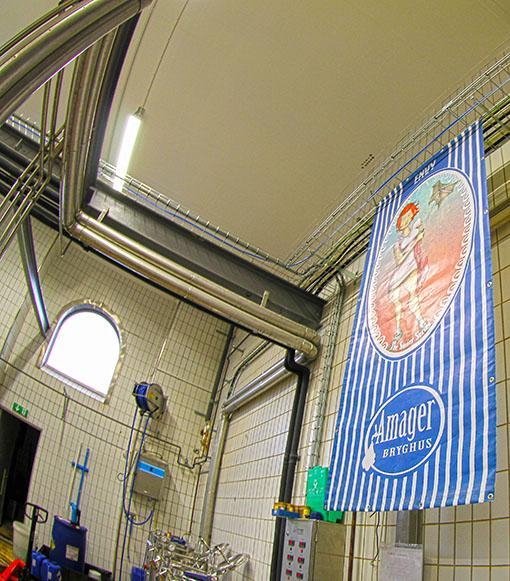
It was actually because I thought they were the only guys making actually good beer. I enjoyed it, of course! Of course there were a lot of breweries making good stouts, but I am more into West Coast – IPA style.
Why Brewski? Where does that name come from?
“[My brother] he told me not to order beer in the bar. He told me ‘it is not beer, it is brewski’. So it is something nice I’ve kept in my head for twenty years. In that bar they never say beer, they say brewski.”
Marcus: Actually it comes from when I visited first a microbrewery. My brother was making this PostDoc in Vancouver. He came to pick me up at the airport, and he said, “we have to go to a place where they make beer, and I’ve never had anything like that, you have to try it”. And he told me not to order beer in the bar. He told me, “it is not beer, it is brewski”. So it is something nice I’ve kept in my head for twenty years. In that bar they never say beer, they say brewski—so it is a slang for beer in some parts of North America, or how some microbrewers call they beers there. But then I heard it in other regions in Canada, that if you order brewski you may get a shitty beer, so I don’t know really.
You have brewed so many fruit beers and Berliner Weiss, why did you choose to focus in that styles?
Marcus: It was actually a coincidence that I started to use fruits. I couldn’t get good quality hops, so I tried to find something that could give me the tropical notes and flavours in the beers. So I thought like, “well, I’m after the mango notes and passion fruit notes, so why not to try with actual mango fruits or passion fruits?”. The only problem was to use it correctly during the process. It was actually very hard to find the spots where to use the fruits. Because I started to use the fruits when I was boiling—doing the wort. So I had nothing out of it—no aromas. So I moved it forward until I found the perfect spot during fermentation, where I had all the sugars fermented as well, and I could keep the aromas and flavours.
Was it fresh fruit or frozen fruit?
Marcus: At the beginning it was fresh fruit, and then treated to be safe. Since I had a small brewhouse, and didn’t sell most of my experiments, so I took it home to drink it with my friends, and I didn’t have to be so careful—I was not so afraid to make it with fresh frood and no treatment. But then, I started to treat fruit quite early, because I understood that my beers would actually be in the market pretty soon, so I started to work in treating fruit. But, I lost so much aroma, so I started looking for methods to keep the aromas.
You always say that experimentation is very important for you.
“For me experimentation is actually to alternate. I don’t like the same coffee every morning, I don’t like the same sandwich every morning. It’s like developing. When you do something wrong, it is much nicer to figure out how to do it right.”
Marcus: For me experimentation is actually to alternate. I don’t like the same coffee every morning, I don’t like the same sandwich every morning. It’s like developing. When you do something wrong, it is much nicer to figure out how to do it right. If you have beer that you know all the parameters, you know the whole process, you know exactly what to do with the beer in temperature, and in time, then you have the whole package, there is nothing much to do. Some people feel satisfaction having everything wrapped up, then they can relax and go home and sell their perfect package… I just get anxious when is too good, then I start to mix with it. That’s why we don’t have an absolute recipe for any beer, we change it all the time. That’s why we use different batch numbers on the beers—for Mango Feber we have made 50 different batches or something like that. I think I’ve changed it over 35 times.
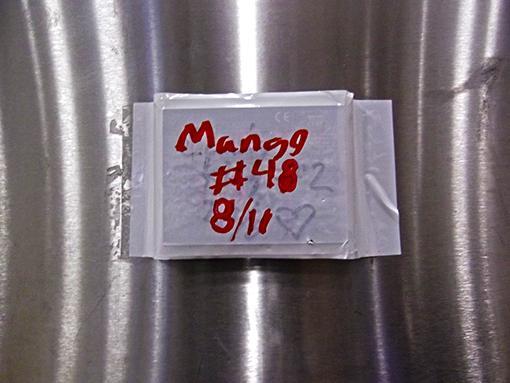
Do you decide the changes yourself or do you bring it up with the other brewers?
Marcus: No, I make the changes myself, and then I discuss it with the brewers. And sometimes, they tell me something like, “this is crazy”. And if they convince me that it is too crazy, then we try something else. But most of the time, I tell them, “we have to try this, and if it goes to hell, it’s not your problem, you will still have your salary”. If it is not good we will never sell it, so there is nothing to lose, you can only win!
When we are discussing how to create a beer, we think about things that we use in our daily life. We are making food—cooking is very important for brewing. If you like to cook, that’s good for brewing. I’ve got lots of ideas from cooking.
Mango Feber is one of your most requested recipes and top rated brews, can you tell us a little bit about it?
Marcus: It is one of the most simple beers I’ve ever made. Its base malt profile is extremely simple. The idea for it was... I just decided it one day! The first fruit beer I did was with papaya, passion fruit and mango. And it came a lot of papaya and passion fruit in the aroma, but not mango. And in the taste, I felt like eating them. Then I was like, “I have to do a mango beer”. So it was more like I was so overwhelmed by that flavour, and I thought it matched so well with the beer—it didn’t take away the fundamental debate. It was still a beer, but with a beer, a big hint of mango. I think they married well. You didn’t take away the soul of the ale. You still knew like “this is a beer”. You still had the malt, and some hoppy stuff. But then on top you had the mango part. So it was a nice combination.
It was also easier to work with mango that with passion fruit and papaya. It was insanely difficult to work with passion fruit, because it has a lot of seeds… and they were everywhere! And the papaya has seeds too, but it can differ a lot in taste from one fruit to another. But then the mango is quite easy to handle—it was the easiest one. And I got more out of it than from the other fruits.
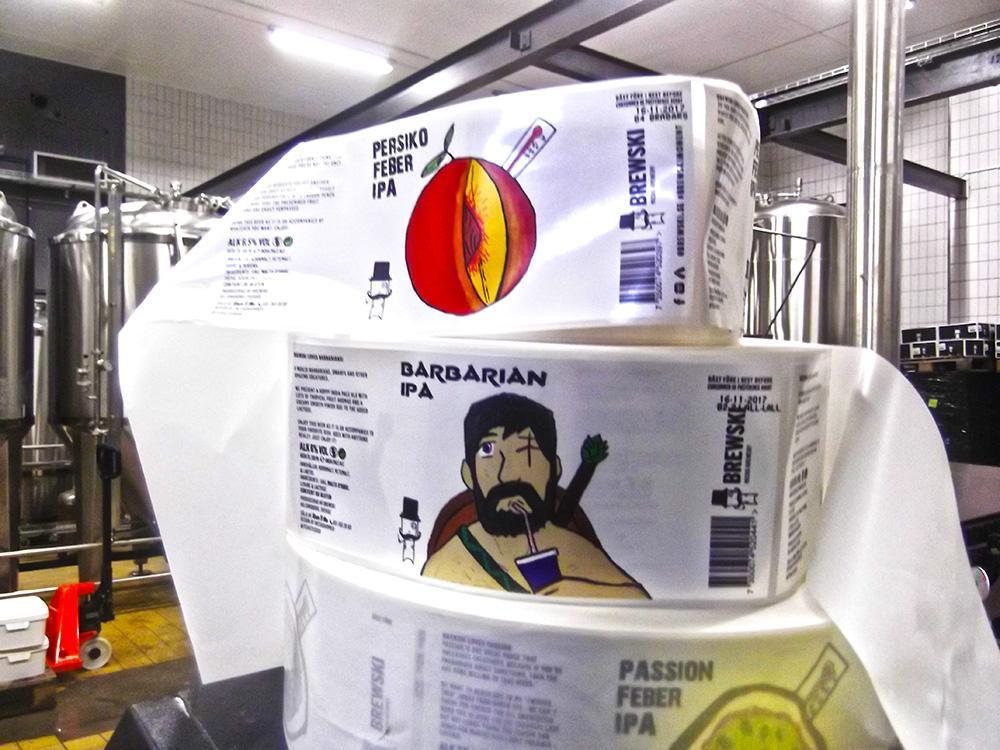
Have you ever thought of using guava?
“If I wake up with an idea tomorrow, I will probably make something out of it next day. That’s the great thing with being the founder of the brewery, and have no interest whatsoever.”
Marcus: Yes, but you have to go to Brazil. And we are actually discussing to use it, as we are discussing now to brew in Brazil, in São Paulo. So if we brew there, we will make a sour with it. If I wake up with an idea tomorrow, I will probably make something out of it next day. That’s the great thing with being the founder of the brewery, and have no interest whatsoever. It’s actually that we make really good money, and we can take everything and put it back to the brewery. So it makes us very, very free. I know some breweries, that have a really hard time experimenting, because they can’t afford it. But they can only blame themselves, because they had their chance in the start to not to think about anything else than developing the product. But they wanted to get money in at once. We lost tons of money first—I didn’t take a salary for two years. And I was prepared for three years without salary. So nobody had salary at the brewery for first two years. Nobody, because I was the only guy there! So I took my first salary maybe seven months ago.
You said that “if you don’t help other brewers, you’re an asshole!” Do you feel there is a great sense of solidarity among brewers?
“Before I started the brewery, nobody wanted to ask me anything… I was just a strange guy in the office that nobody talked to. Not even my kids talked to me—and now they love me!”
Marcus: Yes, I see it like a brotherhood. It is such an unique business in the world. And we all struggle. It is a very young industry. We don’t get much help from the dragons—the guys that have all the knowledge, instruments and everything. So that the only way to develop fast is to get help and inspiration from other brewers. And luckily I met great brewers that have the same philosophy. Then I met brewers that isolate both themselves and their philosophy, I think it’s ridiculous—it is only beer. I don’t want to defend anything, I don’t try to defend anything. If somebody ask me something, I would be happy to help. It is also like recognition—that people ask you stuff—that’s amazing, they want my expertise! Before I started the brewery, nobody wanted to ask me anything… I was just a strange guy in the office that nobody talked to. Not even my kids talked to me—and now they love me!
Did other breweries help you in the beginning?
“We should leave the women run everything. We should leave the women run the countries, run the business, everything! Because when we get upset, we start killing each other! At once!”
Marcus: No, nobody helped me starting the brewery. And I didn’t ask many bewers. Because my way was very unconventional, so it was very hard to ask brewers that were making conventional stuff. So I was very alone the first year. But then I met brewers from the other side of the world who were crazy and they were doing crazy stuff. When they became my friends, the discussion started. They also see that you have to make new ideas and new ambitions all the time. And you get the best by actually being transparent, and talk. Our neighbours right now are also a brewery [Helsingborgs Bryggeri]. If they call us and they need anything, and we don’t have so much of it, we give it to them—we tell them, “no problem, you can borrow it”. That’s very important. It is not only about sharing ideas, but also helping each other with material. If my neighbour wants a pallet of key kegs, and he is desperately in need of it and I have only two pallets left, and I know I would have problems, I would give him a pallet anyway. That’s my philosophy.
It is more like an human project. It’s not so much a beer project. We live in a quite shitty world, where men have destroyed the world. We should leave the women run everything. We should leave the women run the countries, run the businesses, everything! Because when we get upset, we start killing each other! At once!
There is not so many women in the brewing business.
“In Brewski I said that we had to have a female brewer, at least. Our goal is to have a 50% - 50%”
Marcus: No. In Brewski I said that we had to have a female brewer, at least. Our goal is to have a 50% - 50% You have just one problem, that’s the physical part, carrying heavy loads of stuff. But still this is more like a human problem. Hopefully we can mix our roles better.
Do you think female brewers have a different view on brewing?
Marcus: I discuss with Mariana all the time about the beer—and I discuss with Fredrik too. She is very protective—and sometimes that’s something good for us. She is also very strong in her minds and decisions. I am more like a spoiled kid, and sometimes I have to shake up. She doesn’t know it, but sometimes she leads us to make better things—or better decisions. We could easily get agressive—not me, not so much. And she has a great influence over me and over the whole team. I would love to have maybe one or two more women. I tried to get my wife into the business—but no fucking way. She is actually envolved in the background—I take a lot of decissions with her, I discuss situations with her, so I’d like her to be more active in the brewery.
There has been a craft beer explosion in the last years. In Denmark they even brand it as the Danish Craft Beer Revolution. Also in south of Sweden, the scene is booming. Why do you think craft beer has been so successful in this part of the world?
Marcus: It’s good, because then all the other breweries have to shape up. Since I started brewing, the quality in this area has improved enormously. Before I started, I didn’t know more than 4-5 breweries out of 500, but now maybe there are 1500 breweries in this part of Europe. So the quality is getting better and better. And it is also good because the bad seeds are removed. Because the consumers can suddenly be selective, so the guys that doesn’t care about quality dissapear. So I think it’s good for the business. So it is like every other business. If you don’t have the education, or the quality in what you’re offering, then you should be doing anything else! So I think it’s good both for us and the consumers.
We read that you were going to open a new brewery in Brazil.
Marcus: Actually it was a prank! But now we plan to keep our site and to open another site within a year or two. I know brewers that would like to work there, and as I’ve said before, I don’t like the winter time here, so I could easily spend six months here and six months there without a problem. And I could leave my brewery and still have the same consistency, the same quality. I have the best brewers in this country. I’m not worried when it comes to leave my brewery and open a new site. And that’s why is so important to be open and transparent, also with your employees. You can’t have any secrets if you want to develop, because you have to show them your ideas. And then they can develop into something much better, maybe. Fredrik has done a lot with some of my beers, and developed them into something much better. And the same with Mariana.
What upcoming projects and collaborations do you have in mind?
Marcus: The big project now is actually to plan the next festival—Brewskival—in August 2017. We’re getting 20 more breweries, so it will be around 60-65, and 20 of them will come from the US. We are flying all the beers over the week after the festival, so we can serve fresh American beers. So it is expensive as hell, but if you invite breweries from far away, you cannot pour it when it is two months old. It is not fair with the brewer.
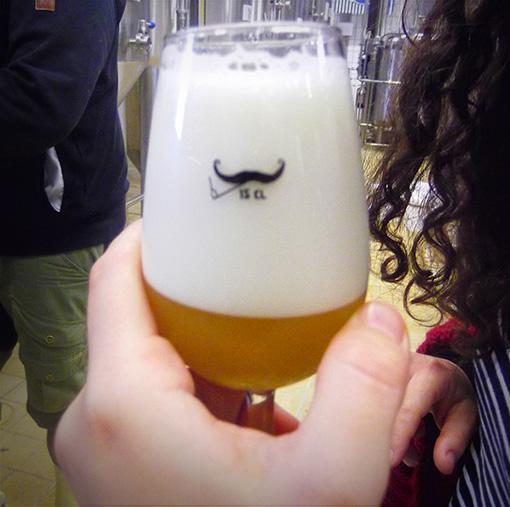
We are planning a collaboration with Mikkeller, and also with Mike Murphy from Lervig, and then some American brewers as well. We did a collaboration recently with AleFarm. We are expanding the brewery right now, renovate it, installing a few fermentors and hopefully renovate the brewhouse within a year.
At this moment we are actually making many different kinds of beer. We were kind of stuck with our standard beer, like the feber products. But now I am trying to kill them in a way. Like the Passion Feber. I told my distributors than in March I stop doing it. This is the beer that we sell most. But I don’t get it. I tell my distributors that this is an experiment brew. Why do we have to brew the same beer the whole time. If we stop this beer, some other beer will take over that spot. So I will have a big problem all the time—that’s to kill all the oldies. I will remove all the standard beers in the future and get new ones, so we can develop, and grow—not by numbers, but grow as brewers.
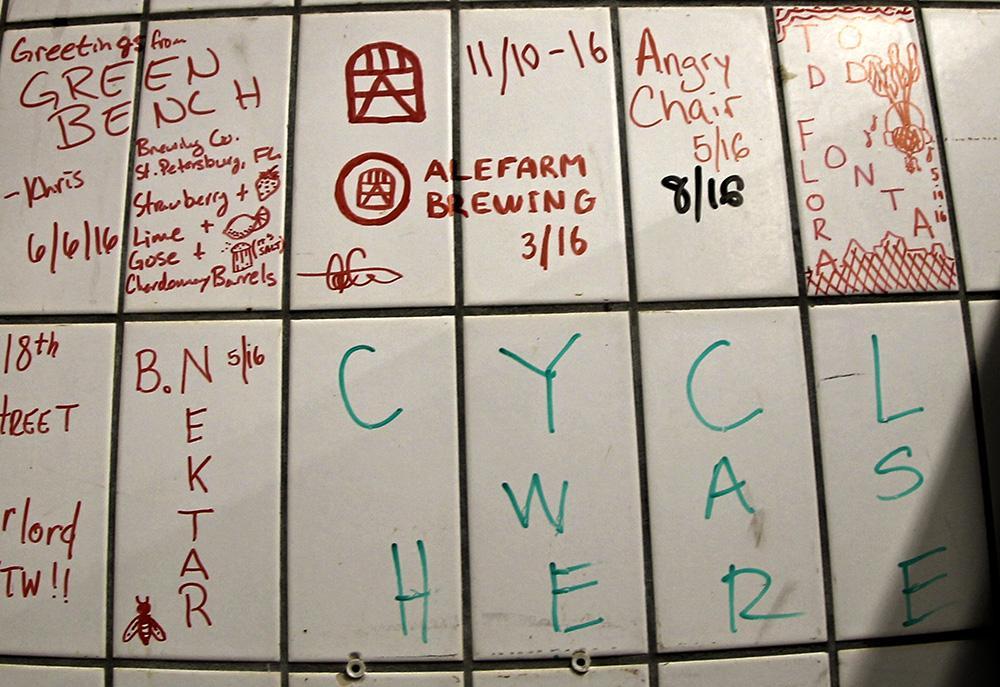
Your artwork is also pretty distinctive, as well as your names.
Marcus: It’s Mariana who makes the names. I had a tap takeover in Lousiana some months ago, and I come into the place, and the owner said, “we will have a lot of problems with those names”. So we changed the names on the beers. It was in the deep Christian South. So he said that in order to avoid problems. But that’s Mariana, she is very good with words—she also takes care of our Facebook page.
Then, the labels are made by my son. I tell him my ideas, and he makes something out of it. Like the mango, I told him I wanted a beer to be named Mango Feber, and he made a mango with a thermometer. And that was great!